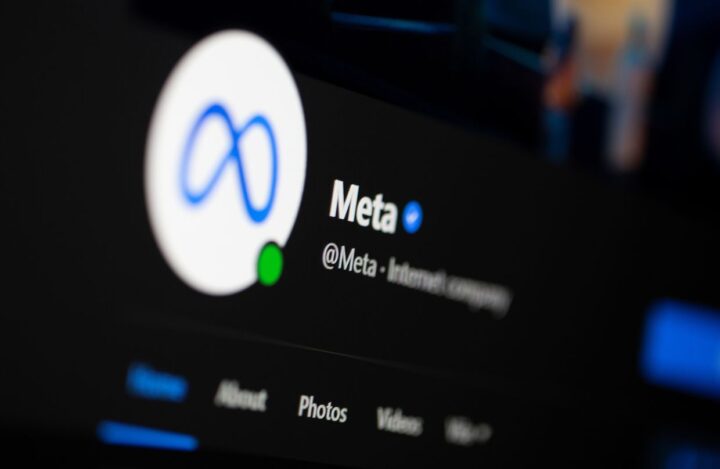A string of cloned Nigerian media pages on the internet leaves social media users needing clarification about where to get accurate information.
The average Nigerian seeks information from the internet on topics such as current events, politics, job recruitment, business ideas, educational issues, and a range of other subjects. The search for information makes them susceptible to cloned pages that advertise fake job recruitment and Ponzi schemes to appeal to people.
More often than not, the handlers of the cloned pages are successful in their deceit.
Some of the media organisations that are victims of cloned accounts include AIT, NTA, and Channels Television — all of whom are popular household names for credible information in Nigeria.
To analyse the depth and scope of the coordinated attempts to spread misinformation, TheCable made use of CrowdTangle — an open-source investigation tool from Meta — to search for similar sock-puppet accounts used to deceive Nigerian citizens.
A total of 97 pages on Facebook were identified, posing as the aforementioned Nigerian media houses. These pages also make use of names and logos of the media houses to gain the trust of unsuspecting social media users and trick them in the end.

One name dominated most of the content of these pages — Crowd1 investment.
The Crowd1 Comeback
In November 2020, the BBC Africa Eye published an investigation revealing an international scam network called Crowd1. The investigation included testimonies from victims who were duped and it revealed the web of people responsible for the scheme.
According to the findings, Crowd1 took a keen interest in Nigeria and India, most likely because of the high population and poverty. These factors increased their chances of deceiving desperate citizens.
Days after the investigation, Crowd1 challenged the findings, describing them as a false and improper portrayal of the company. However, two years down the line, Crowd1 has taken a different approach — hiding behind fake Nigerian media pages.
Some cloned pages have as many as 10,000 followers who ingest Crowd1 content, believing it is a legitimate media page. Most of the pages were created between November 2020 – the same month BBC published its report – and June 2022.
Different tactics used by Crowd1
An examination of most of the cloned accounts revealed that many were adapted from their former use to reflect the interests of Crowd1. The modification was done in order to subtly take advantage of the previous account’s following.

Another method used by the scammers involves luring people with too-good-to-be-true benefits to Whatsapp, where conversations are end-to-end encrypted, away from the public eye. Other times, the inquiries were replied to privately.
For example, this page operates in the guise of TVC News, an award-winning Nigerian media house. A post directing users to get further information on the investments of Crowd 1 had 144 comments, 77 reactions, and one share. All the comments showed interest.

TheCable also identified the use of convincing videos and famous personalities, such as actors and social media influencers, to endorse Crowd 1.
Since Crowd 1’s advent in Nigeria, victims have been sharing stories of being scammed. An example of an account found on My Scholarship Baze, an education and information website, reads: “I was lured into this scheme around May 2020. I paid and joined. I brought people to register under me. I was promised fear of loss, but I didn’t get any. Three months later, when they promised to pay, residual income came and went. Nothing was paid.”
“I have also been claiming the weekly rewards, but all those are just strategies to make you feel you are earning or doing something in the company. You are earning nothing,” another user affirmed.
It’s not just Crowd 1
Like Crowd 1 investments, other Ponzi schemes like Boldgains investment, Racksterli, Norland investment, and Jamalife have taken advantage of the sea of fake media pages to advertise false investment returns.
An example of this is a platform identified as Boldgains Investment Platforms LTD, which promises subscribers profit within two hours of investment.
The Ponzi scheme hides behind a fake AIT page created on August 9 2022 and has since posted various videos luring innocent people to invest in its platform. It has also used similar techniques as Crowd 1, recruiting unsuspecting users to WhatsApp groups and using celebrities to gain the trust of unsuspecting Nigerians via video endorsement posts.
Some of the videos have so far garnered over 500 views, with several persons showing interest in the comment sections.


Screenshots from one of the posts from a fake AIT page promoting Boldgains Investment
Another example is the Racksterli scheme which disguises itself as a Channels TV page and uses a popular politician to lure Nigerians. One such post had 115 comments, 104 reactions, and four shares.
FAKE RECRUITMENT OFFERS
Online scammers have also taken advantage of the fake media pages to post as government institutions and advertise false job recruitments or access to grants and other poverty-alleviating schemes.
On October 12 2022, for example, one of the cloned media pages posing as AIT announced that it was collaborating with the Nigeria Customs Service (NCS) and the National Agency for Food and Drug Administration and Control (NAFDAC) to resell food items at a lower rate.
The now-deleted post was timely as the consumer price index (CPI), which measures the rate of change in prices of goods and services, had increased to 21.09% in October 2022, from 20.77% in the previous month.
According to the National Bureau of Statistics (NBS), the food inflation rate increased from 18.34 percent in October 2021 to 23.72 percent in October 2022, representing a 5.38 percent rise.
Taking advantage of the situation and the vulnerability of Nigerians, the cloned page, under the guise of affiliations with public institutions, offered to slash the prices of goods. Evident from the impressions, many thought this was a favour. The post received 167 likes, 316 comments, and 52 shares.
Many unsuspecting persons requested different quantities of goods to be delivered to various locations in the country, to which they were asked to call a particular “Mr. Joseph”.
Those who expressed concerns about the quality of discounted food items were quickly assured that it was certified by NAFDAC.
On December 7, a similar message was posted on a cloned AIT page. This time, the post gave the impression of a Christmas sale by the Nigeria Customs Office and NAFDAC.
Again, interested users were asked to contact “Mr. Joseph”.


Screenshots from one of the cloned pages allegedly selling food items from NAFDAC at discounted prices
‘I THOUGHT IT WAS TRUE’
In November 2022, an Abuja resident identified as Faith was scammed through a cloned media page on Facebook that offered job recruitment through the Nigeria Customs Service.
“I thought it was true because it was from NTA on Facebook. They said customs was hiring and asked us to text our credentials to a man. Later he asked me to pay 6k for fast processing. He sounded genuine, and I borrowed from a friend to pay, only for him to demand another 4k. That was when I knew it was fishy,” she told TheCable.
Faith said it was when she told her friends about the experience that she discovered people were being scammed through Facebook. However, Faith said she still doesn’t understand how the man accessed some of her details, despite the fact that she did not provide them.
“He probably must have an insider in customs, because I applied with them before. Before I even sent my full details, he had them already. Isn’t it obvious that the system is compromised?” she asked.
For her, all public institutions are “very much the same” and are guilty of “sharing information with scammers”.
“I cannot trust the system again,” she said.
Nearly 37 million people in Nigeria use Facebook and may have come into contact with at least one of these misinformation agents. Faith, a Facebook user, said the experience has made her and her friends wary of public institutions owing to many failed trust attempts.
However, many of the cloned pages are still thriving with their deceit, with majority of them now opening placeholder accounts (accounts with no content), waiting to silently creep into the digital space to defraud the next vulnerable Nigerian.
This article was produced with mentorship from the African Academy for Open Source Investigations (AAOSI) to tackle disinformation that undermines our democracies, as part of an initiative by the International Centre for Journalists (ICFJ) and Code for Africa (CfA). Visit https://disinfo.africa/ for more information.





